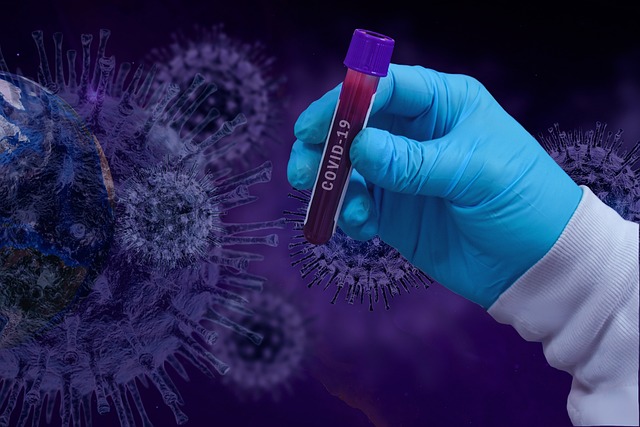Comparison of persistent symptoms after SARS-CoV-2 infection according to antibody status in non-hospitalized children and adolescents Summary Background: The prevalence of long-term symptoms of coronavirus disease 2019 (COVID-19) in non-hospitalized pediatric populations in the United States is not well described. The objective of this analysis was to examine the presence of persistent COVID symptoms in children according to severe acute respiratory syndrome coronavirus 2 (SARS-CoV-2) antibody status. Methods: Data was collected between October 2020 and May 2022 from the Texas Coronavirus Antibody Response Survey, a statewide prospective population-based survey ages 5 to 90. Serostatus was assessed using the Roche Elecsys Anti-SARS-CoV-2 immunoassay for the detection of antibodies against the SARS-CoV-2 nucleocapsid protein. Self-reported antigen/polymerase chain reaction COVID-19 test results and persistent COVID symptom status/type/duration were collected simultaneously. Hazard ratios were calculated for persistent COVID symptoms compared to adults and by age group, antibody status, presence/severity of symptoms, variant, body mass index, and vaccination status. Results: A total of 82 (4.5% of total sample [n = 1,813], 8.0% pre-Delta, 3.4% Delta and above) participants reported persistent COVID symptoms (n = 27 [1.5% ] 4–12 weeks, n = 58 [3.3%] >12 weeks). Compared to adults, all pediatric age groups had a lower risk of persistent COVID symptoms, regardless of the duration of reported symptoms. Additional increased risk of persistent COVID symptoms for more than 12 weeks included severe symptoms with initial infection, not being vaccinated, and having an unhealthy weight (body mass index ≥ 85th percentile for age and sex). Conclusions: These findings highlight the existence of non-hospitalized youth who may also experience persistent COVID symptoms.Children and adolescents are less likely to experience persistent COVID symptoms than adults and are more likely to have symptoms, experience severe symptoms, and be at an unhealthy weight compared to children/adolescents without persistent COVID symptoms. |
Comments
While research has revealed that children and adults hospitalized with COVID-19 are more susceptible to developing long COVID symptoms, a new study by UTHealth Houston researchers found that children infected with COVID-19, but not hospitalized, still experienced long COVID symptoms up to three months after infection.
The study was published in The Pediatric Infectious Disease Journal .
Researchers examined data from volunteers across the state of Texas between the ages of 5 and 18 who enrolled in the Texas CARES survey, which began in October 2020 with the goal of assessing COVID-19 antibody status throughout the state. of time between a population of adults and children in Texas.
Data for this study was collected before and after the vaccine rollout and during the waves of the Delta and Omicron variants.
“We were interested in understanding whether children affected by an acute or severe COVID-19 infection would continue to have persistent symptoms, or what we call long COVID,” said Sarah Messiah, PhD, MPH, first author of the study and professor . of epidemiology, human genetics and environmental sciences and director of the Center for Pediatric Population Health at the UTHealth-Dallas School of Public Health. “This particular study is unique as the first population-based study in the literature to report on the prevalence of long COVID in children who have not been hospitalized with COVID-19.”
A total of 82 pediatric volunteers (4.8% of the total 1,813) reported having long COVID symptoms: 1.5% showed symptoms lasting between four and 12 weeks, including loss of taste and smell, fatigue, and cough . An additional 3.3% reported that symptoms such as loss of taste and smell, cough and shortness of breath persisted for more than 12 weeks.
"From this information, we wanted to know, ’What would put a child at higher risk for long COVID and who is most susceptible to this?’ When we looked at the risk factors of those who reported symptoms over the past 12 weeks, we found that unvaccinated children who were obese were more likely to develop long COVID. These findings are consistent with other literature that found that children and “Adults who have comorbid health conditions and are not vaccinated are at higher risk of being hospitalized from the virus,” Messiah said.
Additionally, the researchers found that children infected with COVID-19 before the emergence of the Delta variant were at greater risk of developing long COVID. “If you had COVID-19 earlier in the pandemic, you were at higher risk of having longer-lasting symptoms. With Delta and Omicron, we saw many children who ended up hospitalized, but their symptoms were less severe and our results show that they were also less likely to report persistent symptoms,” Messiah said.
Messiah said the results of the Texas CARES study are important because they highlight the presence of non-hospitalized youth who may also experience persistent and long-term COVID symptoms after infection.
“There may be a perception that you need to be hospitalized to have long COVID, and that’s not what we found. I encourage parents to continue to be careful and vaccinate their children against COVID-19, because we now know that it will decrease the risk of infection and long COVID,” she said.
Final message The findings of this study show that non-hospitalized young people can also experience persistent COVID symptoms that last at least several months. Risk factors include having severe symptoms with initial infection, not being vaccinated, and being obese. These findings have important implications for informing post-pandemic recovery as we learn more about those who report the chronic impacts of initial infections. For the pediatric population, resources can be developed in both clinical and community/school settings to support this important subgroup of individuals infected with SARS-CoV-2, especially given the findings here that children who experience persistent COVID symptoms have not been hospitalized or experienced severe symptoms after initial infection. |
















